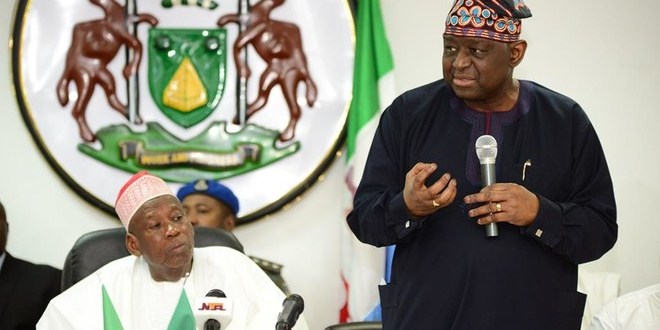Nearly 53 out of all people internally displaced across the most affected states of Borno, Yobe and Adamawa are women and girls—and 1.73 million of them are of child bearing age, the Fund said. “Our aim is to redouble efforts to ensure that their rights to access health care is protected and the Government have all the support they need to overcome overwhelming challenges” said Dr Babatunde Osotimehin, UNFPA’s executive director.
He and women affairs minister Aisha Alhassan undertook a joint mission to the north east to advocate for the reproductive health and rights of women and girls, and to closely align UNFPA support with domestic programmes and priorities. The Fund raised concern amidst statistics that one Nigerian woman could die every 10 minutes from pregnancy-related conditions, insisting the deaths could be prevented if women and girls have access to education and reproductive health services, including family planning.
Risk of death is heightened in humanitarian crises that displace populations and undermine community social support mechanisms, limiting access to health facilities and workers to take care of women’s and girls’ special needs, said the Fund. It said it remained committed to “full realisation of the sexual and reproductive health and rights of all women and girls in all conditions, crises or otherwise, at all times.” Following meetings, Kaduna, Kano and Borno governments have vowed commitment to improve the future for girls.
Kano state governor Abdullahi Ganduje pledged to initiate steps to end early marriage, legally setting the age of marriage at 18 and ensure that girls stayed in school. Kaduna unveiled a technical brief to harness its demographic dividend from a population with eight out of 10 people aged less than 35 years. Kaduna state governor Nasir El-Rufai, in talks with Osotimehin, said, “The decision to ignore or harness their potential will determine if the population will be a liability or an asset. By this unveiling, we have initiated steps to do the latter.”
Borno State Governor, Kashim Shettima, thanked UNFPA for its humanitarian assistance and committed to protecting the rights of women and girls and their access to educations and reproductive health care.
Source:Swankpharm

 Nearly 53 out of all people internally displaced across the most affected states of Borno, Yobe and Adamawa are women and girls—and 1.73 million of them are of child bearing age, the Fund said.
Nearly 53 out of all people internally displaced across the most affected states of Borno, Yobe and Adamawa are women and girls—and 1.73 million of them are of child bearing age, the Fund said.




